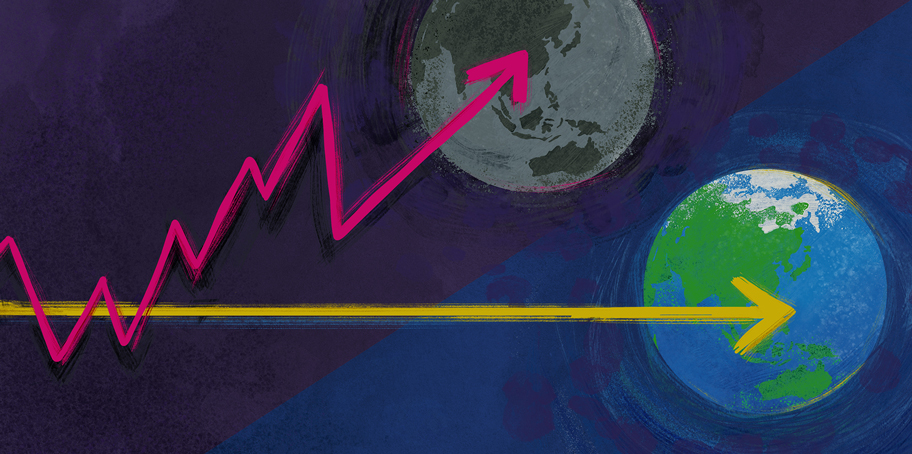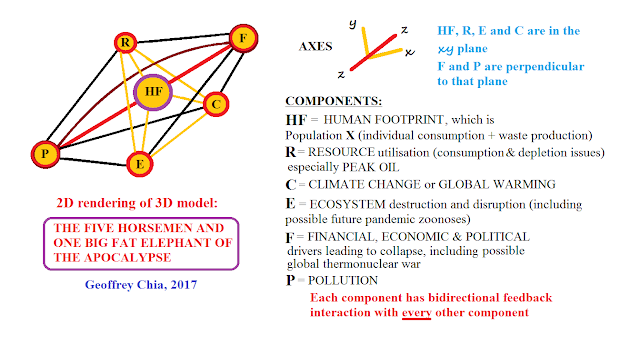Yet, the issues and underlying dilemmas are much more complex than just exploitive foreign capital and revenue-seeking politicians. Yes, these are problematic; without a doubt. But they are one piece in a multi-layered puzzle that may or may not have a ‘solution’.
Society’s embracing of several self-destructive behaviours must be undone and reversed. Perhaps the most fundamental of these is the pursuit of ‘growth’. Economic. Population. Technological. Et cetera.
We do not live on a planet with infinite resources and the exponential increase of our activities continues to paint us further and further into a corner. While it is unlikely there will be a definitive ‘day of reckoning’ because of our blasting past our natural carrying capacity (since collapse is a process, not an event), the consequences of our actions will be felt as surely as day follows night.
In fact, it could be argued that we are already and have been experiencing the fallout of our expanding and increasingly complex activities for some time now. Decimated species required for food crop pollination. Expanding geopolitical tensions over resources, especially fossil fuels and water. Supply chain interruptions. Environmental disasters. Increasingly authoritarian government policies and edicts to control populations. Currency debasement. Global pandemics. And on and on.
A group of MIT researchers some years ago proposed that there were real biophysical limits to the pursuit of growth and that the time to alter our trajectory was upon us. That was almost 50 years ago (The Limits to Growth, 1972). Unfortunately, humanity has followed the ‘Business-as-Usual’ scenario outlined by the study. The path forward from this point does not look promising. Yet, it is virtually guaranteed to be the one we continue to follow since we have ignored the warnings.
In our haste to believe ‘this time is different’ or that ‘we are smarter’ (usually in the form of the trope ‘human ingenuity and technology’), we have continued to pursue growth in almost all its guises. And it’s almost all of us that are guilty. Yes, our ‘leadership’ has led the way and been the main cheerleaders of the idea that growth only has positive attributes. And, yes, the pursuit has been exacerbated by the fiat currency swindle imposed upon the world. But most of us, perhaps unwittingly, have been consumption machines, endlessly purchasing and expanding our environmental footprints.
Unless and until we all begin serious discussions about degrowth on a global scale (even just local/regional would be a great start), I fear we will continue along our current path; in fact, it would appear we have actually picked up speed in these exploitive and damaging endeavours as diminishing returns (see archaeologist Joseph Tainter’s The Collapse of Complex Societies) have made it necessary to invest more and more effort, energy, and resources into finding and retrieving the resources necessary to hold our complex systems together for a bit longer.
Australia’s investments in Canadian resources is a natural consequence of our growth pursuits. And politicians, whose primary motivator is the control, maintenance, and expansion of the wealth-generating systems that provide their revenue stream, will almost always encourage such activities. Negative consequences be damned.
If we cannot change the conversation and our behaviours, then we cannot change the eventual outcome. Nature will do for us what we are unable to accomplish ourselves. And we will likely not enjoy the way nature brings the planet back into balance.
















